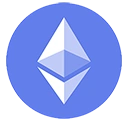Governance tokens are a crucial component of the Ethereum ecosystem, enabling decentralized decision-making and community participation in various decentralized applications (dApps) and protocols. These tokens empower holders with voting rights, allowing them to influence the direction and development of the projects they are involved in. Below are the key aspects of governance tokens:
1. Definition of Governance Tokens
Governance tokens are cryptocurrencies that grant holders the ability to vote on important decisions regarding the protocol's future. This includes changes to the software code, protocol upgrades, and other significant modifications. Unlike traditional cryptocurrencies, governance tokens focus on community governance rather than just serving as a medium of exchange.
2. Empowering the Community
Governance tokens strengthen the sense of community within a dApp by providing all token holders with equal rights to propose changes and vote. This democratic approach fosters a more inclusive environment where every participant can contribute to the project's evolution.
3. Enhanced Adaptability
By allowing users to propose changes and vote on updates, governance tokens provide valuable insights to developers about the most pressing issues within the dApp. This adaptability ensures that the protocol remains competitive and responsive to user needs and market trends.
4. Transparency and Trust
Governance tokens utilize smart contracts to record votes and enforce results without the need for intermediaries. This transparency minimizes the risk of manipulation and builds trust among participants, as all voting data is publicly accessible on the blockchain.
5. Centralization Concerns
While governance tokens promote decentralization, there are concerns regarding the concentration of power among large token holders (often referred to as "whales"). In a one-token-one-vote model, those with significant holdings can disproportionately influence decisions, potentially undermining the democratic nature of governance.
6. Example of a Governance Token Contract
The following sample code demonstrates a simple governance token contract using Solidity. This contract allows token holders to propose and vote on changes:
// SPDX-License-Identifier: MIT
pragma solidity ^0.8.0;
import "@openzeppelin/contracts/token/ERC20/ERC20.sol";
contract GovernanceToken is ERC20 {
mapping(address => uint256) public votes;
constructor(uint256 initialSupply) ERC20("GovernanceToken", "GT") {
_mint(msg.sender, initialSupply);
}
function proposeChange(string memory proposal) public {
// Logic for proposing a change
}
function vote(uint256 proposalId) public {
// Logic for voting on a proposal
votes[msg.sender]++;
}
}
7. Conclusion
Governance tokens play a vital role in the Ethereum ecosystem by enabling decentralized decision-making and fostering community engagement. They empower users to influence the direction of projects, enhance adaptability, and promote transparency. However, challenges such as centralization of power among large holders must be addressed to ensure a truly democratic governance process.

